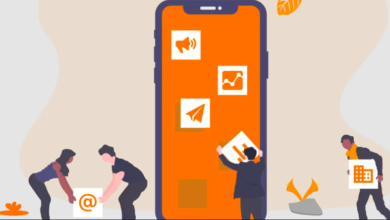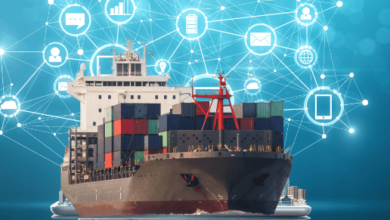Cybersecurity Essentials for New eCommerce Businesses

Starting an eCommerce business is exciting but also comes with significant responsibility. In addition to managing inventory, marketing, and customer service, you must prioritize cybersecurity. A data breach or security lapse can damage your business reputation and customer trust. A slow and unsecured website can increase bounce and lower sales on your site. This article will cover some essential cybersecurity measures that every new eCommerce business should consider.
Secure Your Website
It’s the primary platform where you interact with customers, showcase your products, and process transactions. Therefore, it’s essential to secure it against cyber threats.
Here are some essential measures to secure your website:
- Use Secure Sockets Layer (SSL) Encryption: SSL encryption is an industry-standard security protocol that encrypts the data between the user’s browser and the server. It prevents cyber criminals from intercepting and stealing sensitive information such as credit card details, login credentials, and personal information.
- Keep your Software Up-to-Data: Ensure you’re running your website software’s latest version, including the Content Management System (CMS), plugins, and themes. Older versions can have security vulnerabilities that cybercriminals can exploit to compromise your website.
- Implement Strong Password Policies: Passwords are the first line of defense against cyber attacks. Ensure all users (including employees) use strong and unique passwords, and enforce password changes regularly.
- Use a Web Application Firewall (WAF): A WAF is a security solution that monitors and filters incoming traffic to your website. It can identify and block malicious traffic, such as SQL injection and cross-site scripting attacks.
Managed Magento Hosting
If your eCommerce business uses Magento as your CMS, you should consider using managed Magento hosting. Managed hosting is a service provided by a third-party provider like Nexcess that takes care of all the technical aspects of hosting your website, including security, backups, and maintenance.
Here are some benefits of managed Magento hosting:
- Enhanced Security: Nexcess managed hosting offers more robust security measures, including firewalls, intrusion detection systems, and malware scanning to protect your website from cyber-attacks.
- Automatic Backups: A managed host like Nexcess will take regular backups of your website, ensuring that you can restore your website in case of a data breach or any other disaster.
- Improved Performance: Managed hosting providers optimize their servers for Magento, resulting in faster loading times and improved user experience.
- Technical Support: A managed host will provide technical support, saving you time and resources. If you encounter any issues with your website, you can contact the hosting provider, and they’ll resolve them for you.
Implement Multi-Factor Authentication (MFA)
Multi-factor authentication (MFA) is an additional layer of security that requires users to provide more than one form of authentication to access your website. Typically, this involves entering a username and password, followed by a one-time code sent to their mobile device.
MFA adds an extra layer of security, making it difficult for cybercriminals to compromise your website even if they have stolen a user’s password.
Educate Your Employees
Your employees can be the weakest link in your cybersecurity chain. Educating them about the risks of cyber attacks and how to identify and prevent them is essential.
Here are some tips for educating your employees about cybersecurity:
- Conduct Regular Training: Conduct regular training sessions to educate your employees about the latest threats, such as phishing, malware, and social engineering attacks.
- Define Your Policies: Define your cybersecurity policies and ensure your employees understand them. These policies should include guidelines on password management, email use, and the use of personal devices.
- Keep Employees Informed: Keep your employees informed about new threats or cybersecurity issues affecting your business.
- Encourage Reporting: Encourage your employees to report any suspicious activity immediately. If an employee notices something unusual, such as an unexpected email or pop-up message, they should report it to the IT department or supervisor.
Use Anti-Malware Software
Anti-malware software protects your website and devices against malware like viruses, Trojans, and ransomware.
Here are some tips for using anti-malware software effectively:
- Choose the Right Software: Choose a reputable anti-malware software suitable for your needs. Look for software that offers real-time scanning, automatic updates, and frequent scans.
- Keep Your Software Up-to-Date: Make sure you’re running the latest version of your anti-malware software. Older versions can have security vulnerabilities that cybercriminals can exploit.
- Schedule Regular Scans: Schedule regular scans of your website and devices to identify any potential malware. You can set up automated scans to ensure your website is always protected.
Monitor Your Website
Monitoring your website can help you identify any suspicious activity early. You can use website monitoring tools to monitor your website’s performance, uptime, and security.
Here are some tips for monitoring your website:
- Use Website Monitoring Tools: Use website monitoring tools to monitor your website’s performance, uptime, and security. These tools can alert you to potential issues like downtime or security breaches.
- Monitor Your Website’s Traffic: Monitor your website’s traffic to identify unusual patterns or spikes. If you notice increased traffic from a particular location, it could signify a cyber attack.
- Monitor Your Website’s Content: Regularly monitor your website’s content to ensure that there are no malicious links or content that could harm your users.
Cybersecurity is a critical aspect of any eCommerce business. By implementing the above cybersecurity measures, you can protect your business from cyber-attacks and safeguard your customers’ data.
Remember, cybersecurity is not a one-time task. It requires ongoing monitoring and maintenance to keep your website and business secure. Stay updated on the latest threats and implement new security measures to ensure your eCommerce business is always protected.




